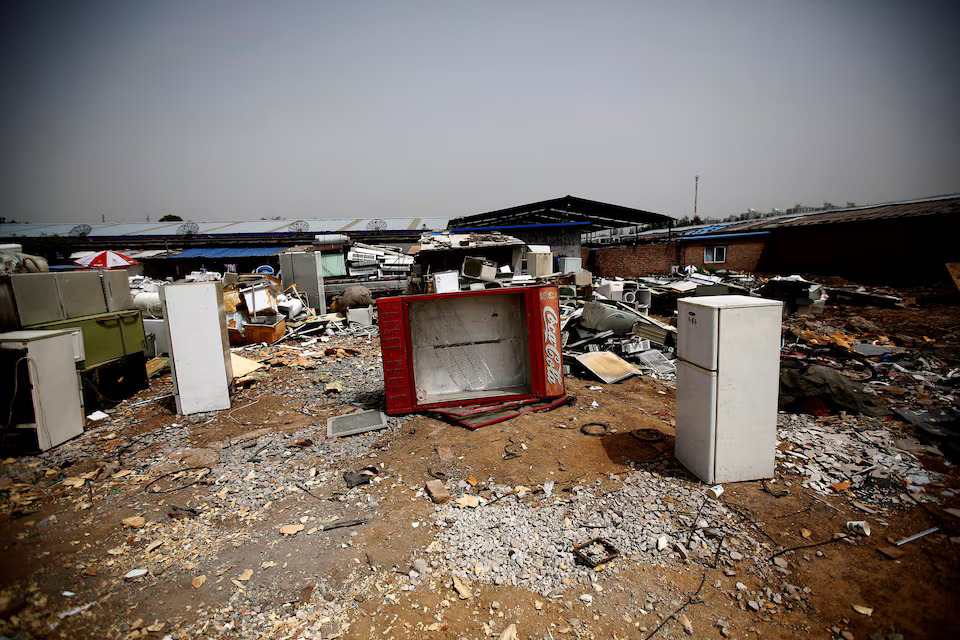SINGAPORE -- Large amounts of climate-warming refrigerant gases from China and Turkey are being smuggled illegally into Europe, undermining a global pact to phase them out, a report by the London-based Environmental Investigation Agency (EIA) said on Monday.
The gases are hydrofluorocarbons (HFCs), a range of chemicals used mostly for cooling in industry and retail, which do not damage the ozone layer like other banned refrigerants, but as greenhouse gases can be several thousand times more potent than carbon dioxide.
Despite commitments to reduce HFC use, law enforcement agencies across the European Union are struggling to keep track of illicit shipments entering via Turkey, Russia or Ukraine, with smugglers resorting to increasingly sophisticated tactics to evade detection, the EIA said following a two-year undercover investigation.
"It's still pretty easy to find illegal HFCs in the European market," said Fin Walravens, a senior EIA campaigner. "There are signs that traders are adapting their methods, that they are getting a bit of savvy trying to evade authorities."
"If you can sneak in the most polluting, nastiest gas, you're basically getting the biggest buck."
As part of the 2016 Kigali amendment to the Montreal Protocol, European and other industrial countries are committed to slash HFC use by 85 percent from 2012 to 2036. To make the phase-down happen, authorised HFC producers and consumers are assigned quotas that are reduced gradually.
But with demand still strong, the phase-downs have driven up prices, creating incentives for smugglers - many of whom are also licensed traders - to make more supply available, the report showed.
"It is so much easier if you're licensed to just exceed your quota: it is so hard to prove," said Walravens. "The phase-down is meant to make HFCs expensive and make people think alternatives are better and more cost effective, but if illegal trade comes in and is sold at half the price, the whole system crumbles."
A 2021 EIA investigation suggested illegal HFCs smuggled into Europe could amount to 20-30 percent of legally traded volumes, the equivalent of up to 30 million tons of CO2. The new report did not give a revised estimate, but Walravens said "very little has changed".
China is the world's biggest HFC producer, with 39 authorised manufacturers granted production permits equivalent to 185 million tons of CO2 this year. It issued new rules in December to punish firms that exceed their quotas.
Even when alternative products are available, enforcing chemical phase-outs has been a major challenge, with some governments "unable or unwilling to crack down", said Ian Rae of the University of Melbourne, who was a technical adviser to the Montreal Protocol.
"There always seems to be demand from customers who have been happy with the old product and reluctant to change to the new, which can be more expensive," he said.





















































